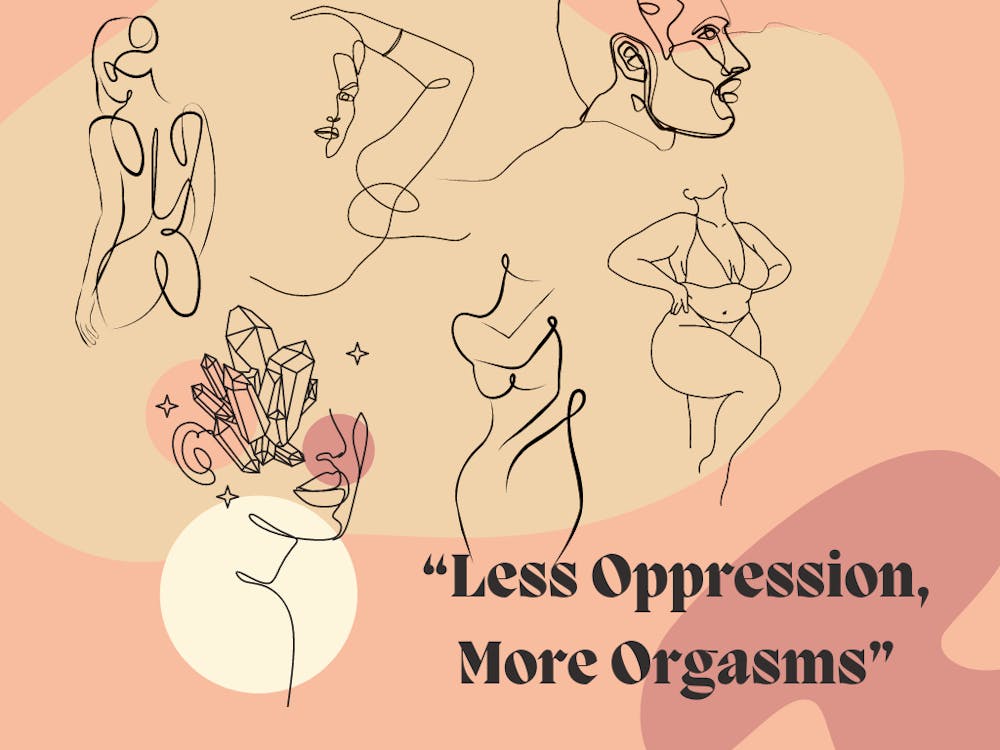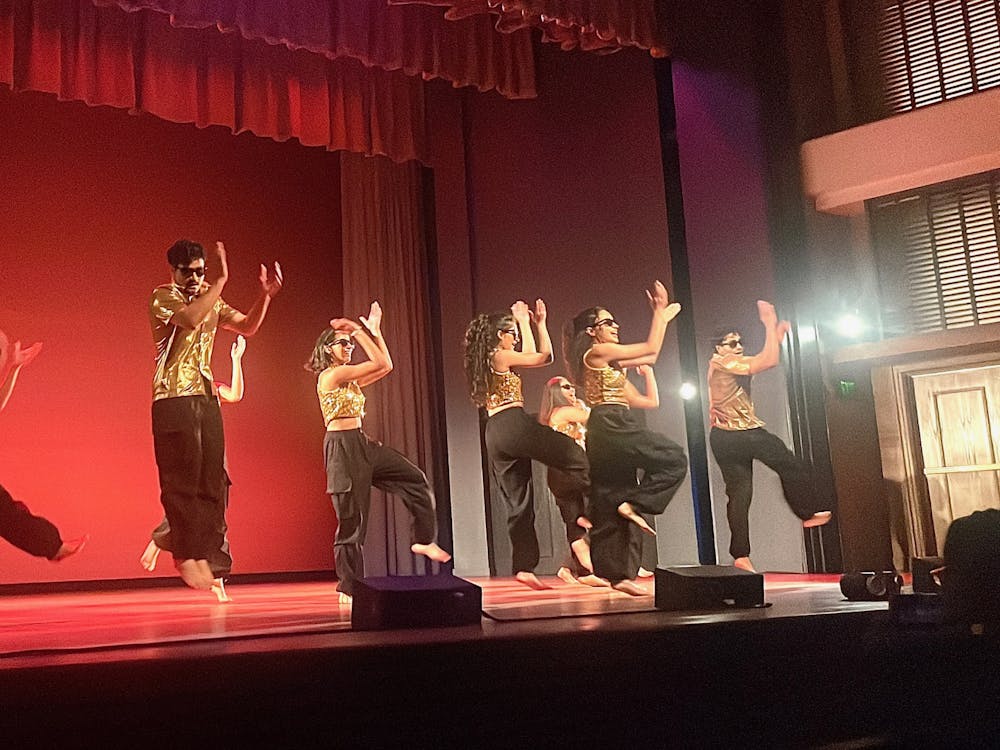Sex educators and social workers Dalychia Saah and Rafaella Fiallo led conversations about sex, pleasure and vulnerability with UR students and faculty at Afrosexology’s Workshop: “Less Oppression, More Orgasms” on March 28.
“You know, most of us have been taught to think of sex as a shameful thing, as a bad thing,” Saah said. “Most times we bring up these things, it brings up really negative emotions in our body and we want to avoid them.”
Afrosexology is a platform focusing on black sexuality and sexual liberation, according to its website. Fiallo and Saah have created workshops and workbooks in an effort to explore how oppression has impacted sexual expression individually and in relationships.
“Less Oppression, More Orgasms” was the fourth event of PleasureFest, a series focused on building sex positivity, expanding the definition of pleasure and promoting healing. PleasureFest is an effort led by UR CARE to prevent sexual violence on campus.
After opening the workshop with a group grounding exercise to encourage self-awareness and comfort within the audience, Saah transitioned to recounting the history of Liberia, where former experiences molded the concept of freedom and liberation. A hierarchy system was created in Liberia where the “oppressed become the oppressors,” Saah said.
Saah emphasized a quote from Audre Lorde, a writer on lesbian feminism and civil rights.
“The true focus of revolutionary change is never merely the oppressive situations which we seek to escape, but that piece of the oppressor which is planted deep within each of us, and which knows only the oppressors' tactics, the oppressors' relationships,” the quote read.
The audience participated in anonymously submitting common oppressive practices in relationships as well as orgasmic practices that feel safe and vulnerable, and that they would like to experience more of in relationships.
Fiallo led a discussion on the importance of vulnerability. She retold a personal experience that reflected the struggle to have good sex because of fear and inadequate education. She also encouraged the audience to reframe vulnerability to feeling open to taking risks and feeling comfortable with the possibility of disappointment and the hope for clarity.
Associate director for LGBTQ+ campus life Casey Butler said Saah and Fiallo were the perfect speakers to convey the purposes/messages of PleasureFest.
“Bringing in Afrosexology to really, kind of, guide us through how these things are embodied and how we can also learn to work through them, to deconstruct them, to figure out what’s working for us, how we can bond with one another, connect with one another outside of these mechanisms of shame and sexual shaming, and body negativity and sex negativity,” said Butler.
Saah and Fiallo ended the workshop with Hot Seat, a game where five students were asked questions about sex, pleasure and relationships on the spot. Hot Seat encapsulated Afrosexology’s workshop to encourage healthy conversations about sex and expand the idea of pleasure individually and within relationships.
Enjoy what you're reading?
Signup for our newsletter
“I feel like I got everything out of it that I was designed to get out of it and more,” first-year Saxon Hernandez said. “It was really cathartic.”
Many students, similar to Hernandez, had a positive response to the workshops.
“I think it shed a lot of light on things, you know, you don’t find yourself thinking about a lot,” said first-year Maddox Lowe. “I thought it was cool. It was, like, a lot different than I expected.”
Contact city and state editor Ava Humphries at ava.humphries@richmond.edu.
Support independent student media
You can make a tax-deductible donation by clicking the button below, which takes you to our secure PayPal account. The page is set up to receive contributions in whatever amount you designate. We look forward to using the money we raise to further our mission of providing honest and accurate information to students, faculty, staff, alumni and others in the general public.
Donate Now



